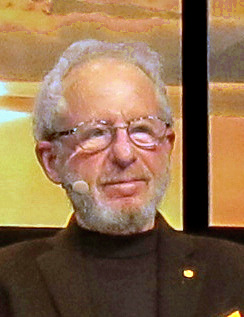A Quote by Rene Dubos
There is a demon in technology. It was put there by man and man will have to exorcise it before technological civilization can achieve the eighteenth-century ideal of humane civilized life.
Quote Topics
Related Quotes
We have to do away with a false and misleading dualism, one which abstracts man on the one hand and technology on the other, as if the two were quite separate kinds of realities.... Man is by nature a technological animal; to be human is to be technological.... When we speak of technology, this is another way of speaking about man himself in one of his manifestations.
Not everything in man's life is summed up in the problem of food. Anyone who thinks that a civilization can be founded on bread alone makes a great mistake. No matter how much bread there is, it cannot produce a man: it can only nourish him. Life exists before food. Man's life comes from the very origin of life. Therefore civilization does not follow the forms of production. All social life follows the action of life.
In the eighteenth century it was often convenient to regard man as a clockwork automaton. In the nineteenth century, with Newtonian physics pretty well assimilated and a lot of work in thermodynamics going on, man was looked on as a heat engine, about 40 per cent efficient. Now in the twentieth century, with nuclear and subatomic physics a going thing, man had become something which absorbs X-rays, gamma rays and neutrons.
It is common to assume that human progress affects everyone - that even the dullest man, in these bright days, knows more than any man of, say, the Eighteenth Century, and is far more civilized. This assumption is quite erroneous. . . . The great masses of men, even in this inspired republic, are precisely where the mob was at the dawn of history. They are ignorant, they are dishonest, they are cowardly, they are ignoble. They know little if anything that is worth knowing, and there is not the slightest sign of a natural desire among them to increase their knowledge.
Compared with this simple, fibrous life, our civilized history appears the chronicle of debility, of fashion, and the arts of luxury. But the civilized man misses no real refinement in the poetry of the rudest era. It reminds him that civilization does but dress men. It makes shoes, but it does not toughen the soles of the feet. It makes cloth of finer texture, but it does not touch the skin. Inside the civilized man stands the savage still in the place of honor. We are those blue-eyed, yellow-haired Saxons, those slender, dark-haired Normans.
It is the same for all men. None of us can escape this shadow of the father, even if that shadow fills us with fear, even if it has no name or face. To be worthy of that man, to prove something to that man, to exorcise the memory of that man from every corner of our life--however it affects us, the shadow of that man cannot be denied.
We have progressed in a technological sense, but I'm not so sure whether we have progressed in a civilizational matter - the quality of the civilization has not improved. It's a civilization that's in love with technology but forgetting about the human side of it and the destructive tendency in human civilization has not been faced.
Rebellion against technology and civilization is real rebellion, a real attack on the values of the existing system. But the green anarchists, anarcho-primitivists, and so forth (The "GA Movement") have fallen under such heavy influence from the left that their rebellion against civilization has to great extent been neutralized. Instead of rebelling against the values of civilization, they have adopted many civilized values themselves and have constructed an imaginary picture of primitive societies that embodies these civilized values.





































